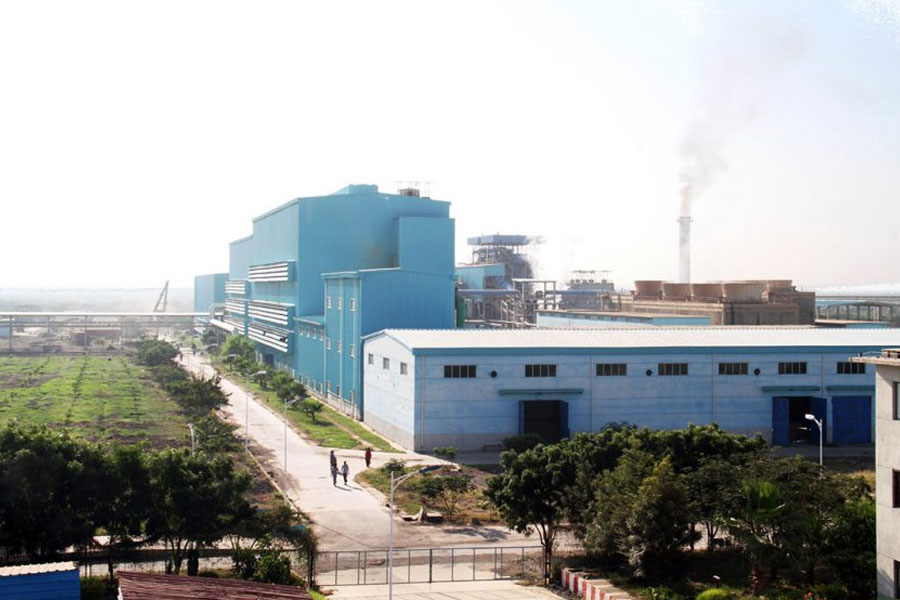
Commentaries | Sep 10,2021
Apr 10 , 2021
By Gidey Belay
The employment law of Ethiopia, like in other countries, is enacted with the purpose of protecting employees. This is manifested by its protective provisions. It is a wholly different matter when it comes to employee dispute arbitration, writes Gidey Belay (gideybelay8@gmail.com), associate at Zee Law Office.
Arbitration is a means of dispute settlement that has gained world-wide attention mainly in commercial and investment disputes. Cases are decided by (a) third entity(ies) appointed by the parties formally known as arbitrator(s). The decision of the arbitration tribunal is binding, final and, enforceable with small differences depending on the laws of the country.
In Ethiopia, arbitral decisions (awards) are binding, final, and enforceable according to the newly enacted arbitration and conciliation working procedure proclamation. But, arbitral awards may be reviewed by the Federal Supreme Court Cassation Bench unless parties agree otherwise. Despite this, the laws do not give a special treatment to employment disputes as its nature is different from other arbitrable disputes. It is a matter that urgently calls for consideration.
But first, what is arbitration and what are its benefits?
Consent of the parties is a central element in arbitration. To settle a dispute through arbitration, the parties should agree, either before or after the dispute arises, to take their case to an arbitration tribunal. In the absence of an agreement, parties can only take their cases to the courts or an administrative tribunal depending on the nature of the case.
People choose arbitration as their dispute settlement mechanism for reasons mainly related to the problems of regular courts. Primarily, judges of the regular courts are generalists; they handle a variety of cases from criminal to civil, from family to business disputes. Thus, they are not experts in a certain area. A complex commercial or construction case may be allotted to a judge who has no knowledge of the construction industry and commerce. In such instances, justice may not be rendered. In arbitration, however, arbitrators are appointed by the parties. This gives parties a chance to search and appoint a person with the knowledge and experience in the area. Hence, expertise is an advantage of arbitration over litigation in courts.
It also takes years to settle a case in a court as judges have backlogged cases. But arbitrators work on a specific case and decide within a lesser time than the regular courts. Neither does it help that courts have fixed procedures, and parties do not have the autonomy to decide on the procedure. Courts also have a fixed place. Arbitration, however, allows parties to skip some procedures and even allow them to choose any convenient place for a meeting. No less advantageous of arbitration is confidentiality, helping parties keep secret any information that may harm their business if disclosed.
Not all disputes can be settled through arbitration, nonetheless. For policy reasons, countries keep some disputes out of reach of arbitration. For example, Ethiopia prohibits arbitrating administrative contracts under its Civil Procedure Code. From the federal government’s perspective, this prohibition has been lifted by the new investment proclamation. Furthermore, the new arbitration and conciliation working procedure proclamation lists matters that cannot be entertained by arbitration. Accordingly, matters such as divorce, adoption; a decision on bankruptcy, a decision on dissolution of companies; lease and other land issues; administrative contracts unless permitted by other laws, trade competition and consumer protection issues; and administrative issues bestowed to administrative tribunals are non-arbitrable.
Across the globe, there is no consensus as to whether employment disputes should be arbitrated. Some countries, such as India, France, and the Netherlands, prohibit arbitrating employment disputes especially individual employment ones. The likes of the United States allow it.
Employment disputes are arbitrable in Ethiopia, according to the Labor Proclamation.
“Parties to a dispute may agree to submit their case to arbitrators or conciliators of their own choice for settlement in accordance with the appropriate law,” the proclamation states.
Further, the new arbitration and conciliation proclamation did not include employment disputes in the list of non-arbitrable matters. The labour law provision does not provide as to when parties may agree to submit their cases for arbitration.
Is it when a dispute arises or during the employment contract? In the absence of any qualification, it is possible to argue that this arbitration agreement could be made during the employment stage.
The employment law of Ethiopia, like in other countries, is enacted with the purpose of protecting employees. This is manifested by its protective provisions such as maximum working hours, different types of leave, employer’s obligation to convert oral employment contracts into writing and limits on temporary employment.
Moreover, the law does not accept agreements that provide less favorable conditions than those provided by the law or waive right guaranteed under the law. All these provisions show that the law wants to protect the employee. The employer’s obligation to contribute to social security also backs this idea.
Despite this, the arbitration law is not as employee-friendly as it looks on the surface. The bargaining power of an employee is, for instance, not the same as the employer. The former are hired on the terms of the latter. Hence, employees will be forced to waive their right to take their case to the regular courts, and agree to arbitration. Although the labor proclamation prohibits agreements to waive the right of an employee, the arbitration and conciliation proclamation allows parties to enter into agreements that waive their right to request review of an arbitral award by the Cassation Bench.
It is also unhelpful that, unlike the labour bench of Ethiopian courts, arbitration tribunals require administration and arbitrators’ fees. As employment disputes are of a small monetary value, employees may not be able to cover the costs to secure their rights. Consequently, they may choose not to claim their rights due to a lack of funds. Even when they do have the finances, they could be impacted negatively by the fact that arbitration is confidential. As a result, there is no public scrutiny, and decisions are passed behind closed doors.
Class actions would also be difficult in arbitration. Due to differences in drafting the arbitration agreements, employees may not be able to bring a class action against an employer as is usually done in court litigation.
No less hampering is the matter of the right to appeal. The labour proclamation does state that parties aggrieved by the decision of an arbitration tribunal may appeal to the board or a court. This right, however, no longer exists as the new arbitration and conciliation working procedure proclamation has repealed it. Employees, with no real consent to and no knowledge of arbitration, may face the challenges.
It is clear - arbitration, in general, has its own benefits. From the employment disputes perspective, nonetheless, it leaves much to be desired.
PUBLISHED ON
Apr 10,2021 [ VOL
22 , NO
1093]


Commentaries | Sep 10,2021

View From Arada | Oct 09,2021

Life Matters | Aug 08,2020

Fortune News | Oct 21,2023

Radar | Nov 07,2020

Fortune News | Nov 20,2021

Fortune News | Jul 17,2022

Viewpoints | Nov 21,2018

Agenda | Jun 15,2024

Fortune News | May 14,2022

My Opinion | 131770 Views | Aug 14,2021

My Opinion | 128153 Views | Aug 21,2021

My Opinion | 126099 Views | Sep 10,2021

My Opinion | 123721 Views | Aug 07,2021

Dec 22 , 2024 . By TIZITA SHEWAFERAW
Charged with transforming colossal state-owned enterprises into modern and competitiv...

Aug 18 , 2024 . By AKSAH ITALO
Although predictable Yonas Zerihun's job in the ride-hailing service is not immune to...

Jul 28 , 2024 . By TIZITA SHEWAFERAW
Unhabitual, perhaps too many, Samuel Gebreyohannes, 38, used to occasionally enjoy a couple of beers at breakfast. However, he recently swit...

Jul 13 , 2024 . By AKSAH ITALO
Investors who rely on tractors, trucks, and field vehicles for commuting, transporting commodities, and f...

Jul 5 , 2025
Six years ago, Ethiopia was the darling of international liberal commentators. A year...

Jun 28 , 2025
Meseret Damtie, the assertive auditor general, has never been shy about naming names...

Jun 21 , 2025
A well-worn adage says, “Budget is not destiny, but it is direction.” Examining t...

Jun 14 , 2025
Yet again, the Horn of Africa is bracing for trouble. A region already frayed by wars...

Jul 6 , 2025 . By BEZAWIT HULUAGER
The federal legislature gave Prime Minister Abiy Ahmed (PhD) what he wanted: a 1.9 tr...

Jul 6 , 2025 . By YITBAREK GETACHEW
In a city rising skyward at breakneck speed, a reckoning has arrived. Authorities in...

Jul 6 , 2025 . By NAHOM AYELE
A landmark directive from the Ministry of Finance signals a paradigm shift in the cou...

Jul 6 , 2025 . By NAHOM AYELE
Awash Bank has announced plans to establish a dedicated investment banking subsidiary...